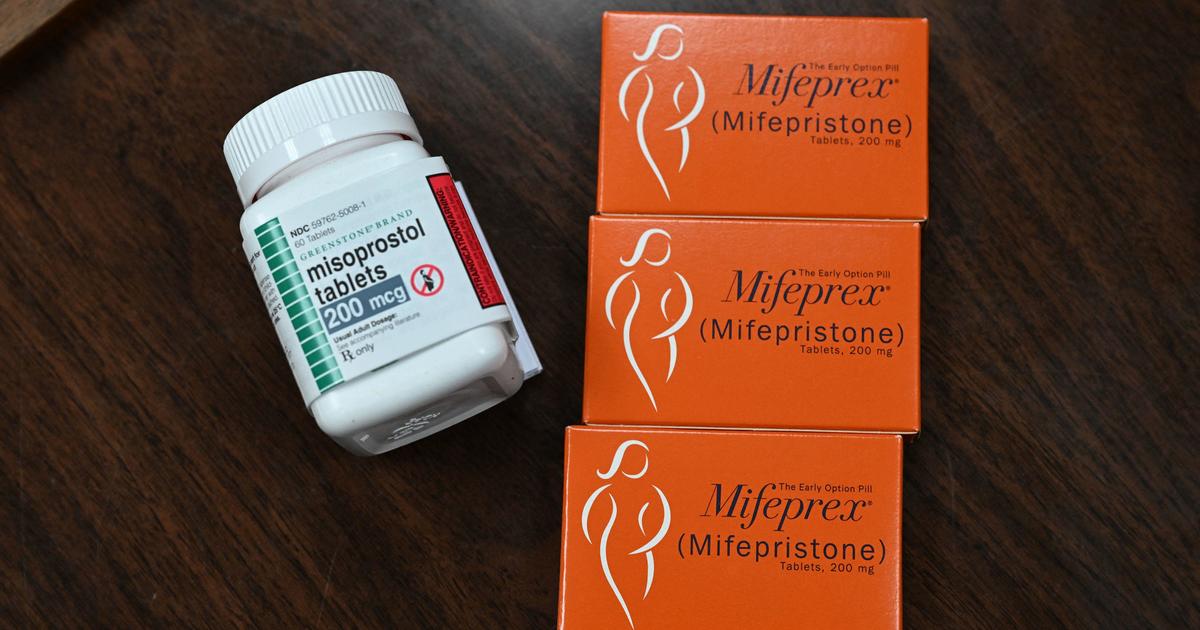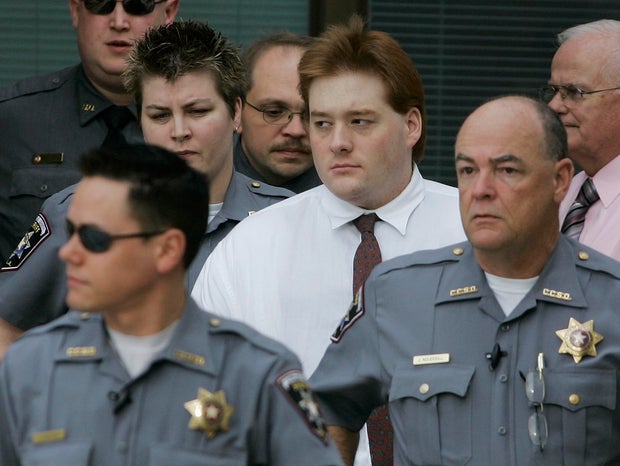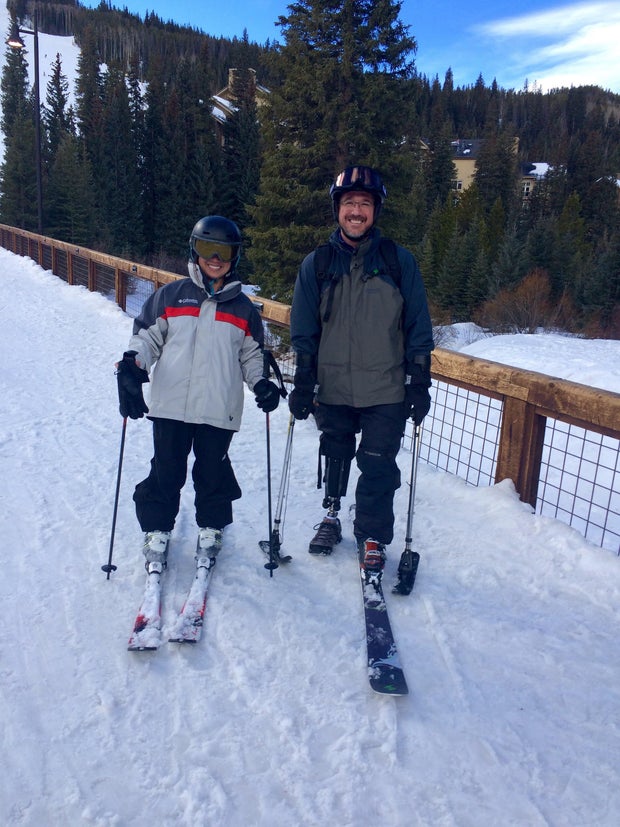CBS News
ACLU warns Supreme Court that lower court abortion pill decisions relied on “patently unreliable witnesses”

Washington — The American Civil Liberties Union is warning the Supreme Court that lower court decisions in a closely watched battle over a widely used abortion pill relied on “patently unreliable witnesses” and “ideologically tainted junk science.”
In a friend-of-the-court brief the ACLU filed with the Center for Reproductive Rights and The Lawyering Project, the groups argued the lower courts that have ruled in the case involving the drug mifepristone supplanted the Food and Drug Administration’s scientific judgment with unproven assertions from anti-abortion rights medical associations and doctors about the alleged harms of medication abortion.
They indicated that the judges’ acceptance of those claims is an outlier and pointed out that other courts hearing cases related to abortion have engaged with those same witnesses and research and “routinely discredited [the anti-abortion rights doctors’] evidence for lack of scientific integrity.”
The ACLU, Center for Reproductive Rights and The Lawyering Project are backing the Biden administration in its dispute involving mifepristone. The justices are set to hear arguments on March 26. Access to mifepristone remains unchanged until the Supreme Court renders a final decision, which is expected by the end of June and would have a nationwide impact, even in states where abortion is legal.
“It’s the Supreme Court’s responsibility to determine whether the evidence in the record adequately supports the 5th Circuit’s conclusions both that the plaintiffs in this case have standing to bring it and that the courts were right to override the FDA’s scientific judgments,” Julia Kaye, senior staff attorney with the ACLU’s Reproductive Freedom Project, told CBS News. “Doing so necessarily involves looking critically at witnesses and research cited throughout the 5th Circuit’s opinion.”
Concerns about witness testimony
Accepted by the lower courts in their decisions against the FDA, the assertions made by anti-abortion rights doctors underpin several key issues that are before the Supreme Court. Chief among them is whether the doctors and medical associations that brought the case have the legal right to sue, as well as whether the FDA acted lawfully when it relaxed the rules surrounding mifepristone’s use through a series of actions in 2016 and 2021.
A federal district court blocked the FDA’s 2000 approval of mifepristone and more recent efforts by the FDA to make it easier to obtain. But the U.S. Court of Appeals for the 5th Circuit narrowed the decision, leaving the FDA’s approval of the drug in place but finding the agency likely acted unlawfully when it loosened the rules about how mifepristone is obtained, who can prescribe it and how late into a pregnancy it can be taken.
But the three groups, which all support abortion rights, said the analyses conducted by the lower courts on the issue of standing, merits and whether the challengers may suffer irreparable harm as a result of the FDA’s actions all turned on unreliable research and witnesses who lack credibility.
The friend-of-the-court brief raises concerns about testimony from six doctors who submitted declarations during an earlier stage in the case about mifepristone’s safety. Claims by five of them have been criticized by other courts in cases involving abortion restrictions.
In one instance, involving Dr. Donna Harrison, a North Dakota Supreme Court justice wrote in a 2014 opinion involving medication abortion that Harrison’s opinions “lack scientific support, tend to be based on unsubstantiated concerns, and are generally at odds with solid medical evidence.”
Harrison, an OB-GYN, worked in private practice until 2000, the year that the FDA approved mifepristone, according to a 2021 filing in a separate case in Indiana. The district court’s opinion against the FDA repeatedly referenced her declaration filed as part of the mifepristone case, which claimed in part that “patients who suffer complications from chemical abortions require significantly more time and attention from providers than the typical OB-GYN patient requires.”
In another instance, involving Dr. Ingrid Skop, a state court in Florida rejected her testimony as “inaccurate and overstated, or based on data from decades ago.” The trial court also said that Skop admitted that her “views on abortion safety are out of step with mainstream medical organizations; and provided no credible scientific basis for her disagreement with recognized high-level medical organizations in the United States.”
In the mifepristone case, the 5th Circuit cited Skop and her views about the risks of the drug 17 times.
Skop defended her research in a statement to CBS News, saying: “As an OB-GYN who has delivered over 5,000 babies in over 30 years of practice and as someone who has treated many women harmed by these abortion drugs, I stick to facts and research, not ad hominem attacks. Any data that doesn’t confirm their abortion on demand bias is ignored by mainstream medical organizations who lobby for abortion through all nine months.”
Harrison is director of research for the American Association of Pro-Life Obstetricians and Gynecologists (AAPLOG) and served as its chief executive officer, and Skop is a member of the group.
“Notwithstanding all these reasons for skepticism, the courts below relied on these witnesses’ say-so for scientific conclusions central to the courts’ legal analysis, crediting their opinions over FDA’s expert assessment and the overwhelming medical consensus regarding mifepristone’s safety,” the ACLU, Center for Reproductive Rights and Lawyering Project wrote in their filing to the Supreme Court.
“Glaringly flawed” studies
In addition to raising concerns about the credibility of the witnesses, the groups also argued that the lower courts relied on “glaringly flawed studies” that mischaracterized research and drew broad generalizations about the impact of abortion.
U.S. District Judge Matthew Kacsmaryk, who blocked the FDA’s 2000 approval of mifepristone and the more recent actions taken by the agency, cited in his April decision a 2021 study examining the alleged mental health impacts of medication abortion that found 77% of women who had a “chemical abortion” reported a “negative change,” and 38% of women “reported issues with anxiety, depression, drug abuse, and suicidal thoughts because of the chemical abortion.”
But the study he references examined 98 anonymous blog posts to the website abortionchangesyou.com from women who purported to have had a medication abortion and subsequently shared their experience on the site between October 2007 and February 2018. The website is run by the group Institute of Reproductive Grief Care.
The theory that abortion can cause harm to women’s mental health has also been refuted by the National Academies of Science, Engineering and Medicine, and the American Psychological Association. But in determining that the medical associations had the right to sue based on what’s known as third-party standing, Kacsmaryk also pointed to a 2011 meta-analysis by Priscilla Coleman that purported to show a link between abortion and mental health outcomes.
Dr. Ushma Upadhyay, a professor at the University of California, San Francisco, and an expert in abortion access and safety in the U.S., criticized Coleman’s methodology and said she compared wanted and unwanted pregnancies without accounting for the reasons that may contribute to whether a patient wants to get pregnant.
“Her work doesn’t account for differences between groups when she looks at people who have had abortions and people who haven’t,” Upadhyay said. “It’s so important because she will attribute the differences in mental health status to the abortion when it’s clear as day that the differences in mental health status are due to a variety of life circumstances between the groups.”
Upadhyay said the research cited by the lower courts is “problematic,” and specifically pushed back on claims that emergency room visits related to mifepristone are high.
The data underlying a 2021 study of emergency room visits after medical abortion that was highlighted by Kacsmaryk is from before 2015 and based on more stringent standards for mifepristone’s use that were in place before the FDA changed the rules in 2016. The journal editor and publisher of the study issued an “expression of concern” last year that said they were “alerted to potential issues regarding the representation of data in the article and author conflicts of interest,” and are conducting an investigation.
Upadhyay said researchers failed to look at the reasons why a patient would visit the emergency room for abortion care, which may be because they don’t have an abortion clinic close to home or a primary care physician. Additionally, because the abortion pill causes bleeding and cramping, patients may go to the emergency room to make sure what they’re experiencing is normal.
“They’re conflating emergency department visits with adverse events,” Upadhyay said. She noted that mifepristone, when taken with a second drug, is 95% to 97% effective, so it’s expected that between 3% and 5% of all medication abortions will be incomplete and require additional treatment.
A 2015 study conducted by Upadhyay found that major complications from medication abortion, defined as requiring hospital admission, surgery, or blood transfusion, occurred in less than 0.32% of patients. Studies of thousands of women who have taken mifepristone that were cited by the FDA in court filings also showed that hospitalization occurred between 0% and 0.7% of cases; serious infections occurred in between 0% and 0.2% of cases; and bleeding requiring transfusion occurred in between 0% and 0.5% of cases.
“There’s no doubt in my mind that the courts would have ruled in favor of the FDA if they were making the decision based on science,” Upadhyay said. “There’s over 20 years of very concrete evidence supporting the safety of mifepristone, and 5 million people have used it successfully, and the medication has a very strong track record.”
CBS News
Oklahoma set to execute man who killed girl, 10, during cannibalistic fantasy

Oklahoma is preparing to execute a man who killed a 10-year-old girl in what would be the nation’s 25th and final execution of the year.
Kevin Ray Underwood is scheduled to die by lethal injection on Thursday, his 45th birthday, at the Oklahoma State Penitentiary in McAlester. Underwood, a former grocery store worker, was sentenced to die for killing Jamie Rose Bolin in 2006 as part of a cannibalistic fantasy.
Underwood admitted to luring Jamie into his apartment and beating her over the head with a cutting board before suffocating and sexually assaulting her. He told investigators that he nearly beheaded the girl in his bathtub before abandoning his plans to eat her.
Sue Ogrocki / AP
Oklahoma uses a three-drug lethal injection process that begins with the sedative midazolam followed by a second drug that paralyzes the inmate to halt their breathing and a third that stops their heart.
During a hearing last week before the state’s Pardon and Parole Board, Underwood told the girl’s family he was sorry.
“I would like to apologize to the victim’s family, to my own family and to everyone in that room today that had to hear the horrible details of what I did,” Underwood said to the board via a video feed from the Oklahoma State Penitentiary.
The three board members in attendance at last week’s meeting all voted against recommending clemency.
Underwood’s attorneys had argued that he deserved to be spared from death because of his long history of abuse and serious mental health issues that included autism, obsessive-compulsive disorder, bipolar and panic disorders, post-traumatic stress disorder, schizotypal personality disorder and various deviant sexual paraphilias.
His mother, Connie Underwood, tearfully asked the board to grant her son mercy.
“I can’t imagine the heartache the family of that precious girl is living with every single day,” Connie Underwood said. “I wish we understood his pain before it led to this tragedy.”
But several members of Bolin’s family asked the board to reject Underwood’s clemency bid. The girl’s father, Curtis Bolin, was scheduled to testify to the board but became choked up as he held his head in his hand.
“I’m sorry, I can’t,” he said.
Prosecutors wrote in opposing Underwood’s clemency request that, “Whatever deviance of the mind led Underwood to abduct, beat, suffocate, sexually abuse and nearly decapitate Jamie cannot be laid at the feet of depression, anxiety or (autism).
“Underwood is dangerous because he is smart, organized and driven by deviant sexual desires rooted in the harm and abuse of others.”
In a last-minute request seeking a stay of execution from the U.S. Supreme Court, Underwood’s attorneys argued that he deserves a hearing before the full five-member parole board and that the panel violated state law and Underwood’s rights by rescheduling its hearing at the last minute after two members of the board resigned.
CBS News
Health insurers limit coverage of prosthetic limbs, questioning their medical necessity

When Michael Adams was researching health insurance options last year, he had one very specific requirement: coverage for prosthetic limbs.
Adams, 51, lost his right leg to cancer 40 years ago, and he has worn out more legs than he can count. He picked a gold plan on the Colorado health insurance marketplace that covered prosthetics, including microprocessor-controlled knees like the one he has used for many years. That function adds stability and helps prevent falls.
But when his leg needed replacing in January after about five years of everyday use, his new marketplace health plan wouldn’t authorize it. The roughly $50,000 leg with the electronically controlled knee wasn’t medically necessary, the insurer said, even though Colorado law leaves that determination up to the patient’s doctor, and his has prescribed a version of that leg for many years, starting when he had employer-sponsored coverage.
“The electronic prosthetic knee is life-changing,” said Adams, who lives in Lafayette, Colorado, with his wife and two kids. Without it, “it would be like going back to having a wooden leg like I did when I was a kid.” The microprocessor in the knee responds to different surfaces and inclines, stiffening up if it detects movement that indicates its user is falling.
Alana Adams
People who need surgery to replace a joint typically don’t encounter similar coverage roadblocks. In 2021, 1.5 million knee or hip joint replacements were performed in United States hospitals and hospital-owned ambulatory facilities, according to the federal Agency for Healthcare Research and Quality, or AHRQ. The median price for a total hip or knee replacement without complications at top orthopedic hospitals was just over $68,000 in 2020, according to one analysis, though health plans often negotiate lower rates.
To people in the amputee community, the coverage disparity amounts to discrimination.
“Insurance covers a knee replacement if it’s covered with skin, but if it’s covered with plastic, it’s not going to cover it,” said Jeffrey Cain, a family physician and former chair of the board of the Amputee Coalition, an advocacy group. Cain wears two prosthetic legs, having lost his after an airplane accident nearly 30 years ago.
AHIP, a trade group for health plans, said health plans generally provide coverage when the prosthetic is determined to be medically necessary, such as to replace a body part or function for walking and day-to-day activity. In practice, though, prosthetic coverage by private health plans varies tremendously, said Ashlie White, chief strategy and programs officer at the Amputee Coalition. Even though coverage for basic prostheses may be included in a plan, “often insurance companies will put caps on the devices and restrictions on the types of devices approved,” White said.
That means that a patient’s costs can also fluctuate significantly, depending on that person’s coverage specifics, the plan’s restrictions and even geographic cost differences.
An estimated 2.3 million people are living with limb loss in the U.S., according to an analysis by Avalere, a health care consulting company. That number is expected to as much as double in coming years as people age and a growing number lose limbs to diabetes, trauma and other medical problems.
Fewer than half of people with limb loss have been prescribed a prosthesis, according to a report by the AHRQ. Plans may deny coverage for prosthetic limbs by claiming they aren’t medically necessary or are experimental devices, even though microprocessor-controlled knees like Adams’ have been in use for decades.
Cain was instrumental in getting passed a 2000 Colorado law that requires insurers to cover prosthetic arms and legs at parity with Medicare, which requires coverage with a 20% coinsurance payment. Since that measure was enacted, about half of states have passed “insurance fairness” laws that require prosthetic coverage on par with other covered medical services in a plan or laws that require coverage of prostheses that enable people to do sports. But these laws apply only to plans regulated by the state. Over half of people with private coverage are in plans not governed by state law.
The Medicare program’s 80% coverage of prosthetic limbs mirrors its coverage for other services. Still, an October report by the Government Accountability Office found that only 30% of beneficiaries who lost a limb in 2016 received a prosthesis in the following three years.
Cost is a factor for many people.
“No matter your coverage, most people have to pay something on that device,” White said. As a result, “many people will be on a payment plan for their device,” she said. Some may take out loans.
The federal Consumer Financial Protection Bureau has proposed a rule that would prohibit lenders from repossessing medical devices such as wheelchairs and prosthetic limbs if people can’t repay their loans.
“It is a replacement limb,” said White, whose organization has heard of several cases in which lenders have repossessed wheelchairs or prostheses. Repossession is “literally a punishment to the individual.”
Adams ultimately owed a coinsurance payment of about $4,000 for his new leg, which reflected his portion of the insurer’s negotiated rate for the knee and foot portion of the leg but did not include the costly part that fits around his stump, which didn’t need replacing. The insurer approved the prosthetic leg on appeal, claiming it had made an administrative error, Adams said.
“We’re fortunate that we’re able to afford that 20%,” said Adams, who is a self-employed leadership consultant.
Again, out-of-pocket costs – even if the patient has health insurance and a doctor’s prescription – can be cost-prohibitive because of the plan’s co-insurance requirements as well as coverage caps or other limitations.
Leah Kaplan doesn’t have that financial flexibility. Born without a left hand, she did not have a prosthetic limb until a few years ago.
Growing up, “I didn’t want more reasons to be stared at,” said Kaplan, 32, of her decision not to use a prosthesis. A few years ago, the cycling enthusiast got a prosthetic hand specially designed for use with her bike. That device was covered under the health plan she has through her county government job in Spokane, Washington, helping developmentally disabled people transition from school to work.
But when she tried to get approval for a prosthetic hand to use for everyday activities, her health plan turned her down. The myoelectric hand she requested would respond to electrical impulses in her arm that would move the hand to perform certain actions. Without insurance coverage, the hand would cost her just over $46,000, which she said she can’t afford.
Working with her doctor, she has appealed the decision to her insurer and been denied three times. Kaplan said she’s still not sure exactly what the rationale is, except that the insurer has questioned the medical necessity of the prosthetic hand. The next step is to file an appeal with an independent review organization certified by the state insurance commissioner’s office.
A prosthetic hand is not a luxury device, Kaplan said. The prosthetic clinic has ordered the hand and made the customized socket that will fit around the end of her arm. But until insurance coverage is sorted out, she can’t use it.
At this point, she feels defeated. “I’ve been waiting for this for so long,” Kaplan said.
KFF Health News is a national newsroom that produces in-depth journalism about health issues and is one of the core operating programs at KFF — the independent source for health policy research, polling and journalism.
CBS News
DNC chair candidate Martin O’Malley says Democrats need to learn from “very bad loss”

Kevin Dietsch / Getty Images
Martin O’Malley has the kind of experience that would typically benefit a Democrat who wants to guide the party’s future after devastating losses in the last election.
He’s a former governor, former mayor and a 2016 presidential candidate who until recently was serving in President Joe Biden’s administration. Yet O’Malley is facing a difficult path in the race to try and become the next chairman of the Democratic National Committee as the party reckons with the reality that key pockets of voters turned against it.
Vital to O’Malley’s attempt is a campaign platform, first reported by CBS News, that calls for reconnecting the Democratic Party “to the kitchen table of every American family.”
“We suffered a very bad loss,” O’Malley said in an interview, urging Democrats “to learn from it in order to win the next battles ahead.”
His vision is centered on a 57-state and territory strategy along with plans to give campaigns “world-class AI tools for voter outreach, research, communications, and financial management, eliminating barriers to effective campaigning.” O’Malley’s pitch is also focused on “re-investing in direct voter registration,” as part of his pledge for the party to make “voter protection and registration the pillars of the change we need to win.”
Democrats weathered a chaotic election cycle in 2024, punctuated by the push within the party to convince President Biden to end his reelection run after a dismal debate performance in June. While Mr. Biden eventually ended his bid in July and endorsed Vice President Kamala Harris to take his place at the top of the ticket, the 107-day sprint that followed resulted in Democrats losing the White House and Senate while failing, albeit narrowly, to win control of the House.
Now the party is essentially leaderless and preparing for an emboldened Donald Trump to return to Washington, where he’ll be able to benefit from Republicans’ unified control of Congress and the White House. Those dynamics will be well in play at the time of the election for DNC chair on Feb. 1 given the unease among Democrats that has been abundantly clear in the weeks following the presidential election.
“I want to see someone who doesn’t come from the Washington circuit, who actually has been out there in the tissue of the country,” Ohio Rep. Marcy Kaptur, a battleground district Democrat, said of the DNC chair race.
Failure can mean opportunity. The party’s struggles means O’Malley, as well as other ambitious Democrats, have a chance to become the next chair and carry wide ranging influence during a critical time for the party as it looks to regain ground in the 2026 midterms and the 2028 presidential election. For all his apparent vulnerabilities, Trump was far more successful in this election than ever before, winning all seven presidential battlegrounds. Whether what happened in 2024 will become a tangible turning point for Democrats is likely to loom over the chair race in the coming weeks.
“That’s the big shift that’s happened with this election going the wrong way on us,” O’Malley said. “We’re now in a mode of needing a changemaker, not a caretaker.”
Among those running for chair, Ken Martin, the leader of Minnesota’s arm of the Democratic Party and a DNC vice chair, as well as Wisconsin Democratic Party Chair Ben Wikler, are seen as frontrunners. Martin has deep relationships within the DNC and can boast a statewide winning streak for candidates in Minnesota, while Wikler carries the political gravitas of helping lead the party in one of the nation’s seven presidential battlegrounds.
Earlier this month, Martin announced a framework which includes his drive for a “Democratic infrastructure in all 3,244 counties,” across the country, as well as taking on the branding problem evident from the 2024 election results.
“The majority of Americans now believe the Republican Party best represents the interests of the working class and the poor, and the Democratic Party is the party of the wealthy and the elites,” Martin said in his framework. “It’s a damning indictment on our party brand. We must be willing to dig deep and recenter the Democratic agenda to unite families across race, age, background, and class.”
During a brief pitch to party leaders at a meeting in Washington D.C. last week where Martin and O’Malley also spoke, Wikler told his fellow Democrats “we need to build the battle plan to change how we communicate, so we show what we mean when we say we fight for working folks.”
This isn’t the first time O’Malley has been linked to leading the party. Days after the 2016 election, he posted on social media that despite encouragement, he would not run for chair. Eight years later, he’s navigating a short window to make his case as he emphasizes his lengthy career in politics.
O’Malley served as mayor of Baltimore from 1999 to 2007 and went on to win two terms as governor of Maryland, which included a stint leading the Democratic Governors Association. His political power has faded since then however, illustrated most notably by the struggles he faced during his campaign for president in the 2016 Democratic primary. Before announcing his run for chair, O’Malley spent nearly a year working in the federal government as commissioner of Social Security.
That experience is intertwined in O’Malley’s platform, which also calls for creating “a feedback loop for our local and state elected officials to ensure that they can help inform our messaging and tactics.”
“We all know we need to restore our credibility,” O’Malley said. “We need to learn from our failings, as well as our candidates who succeeded. But only one of us [in the race for DNC chair] has actually proven an ability to effectuate a rapid turnaround like we need to do right now in order to win the next election.”
contributed to this report.




